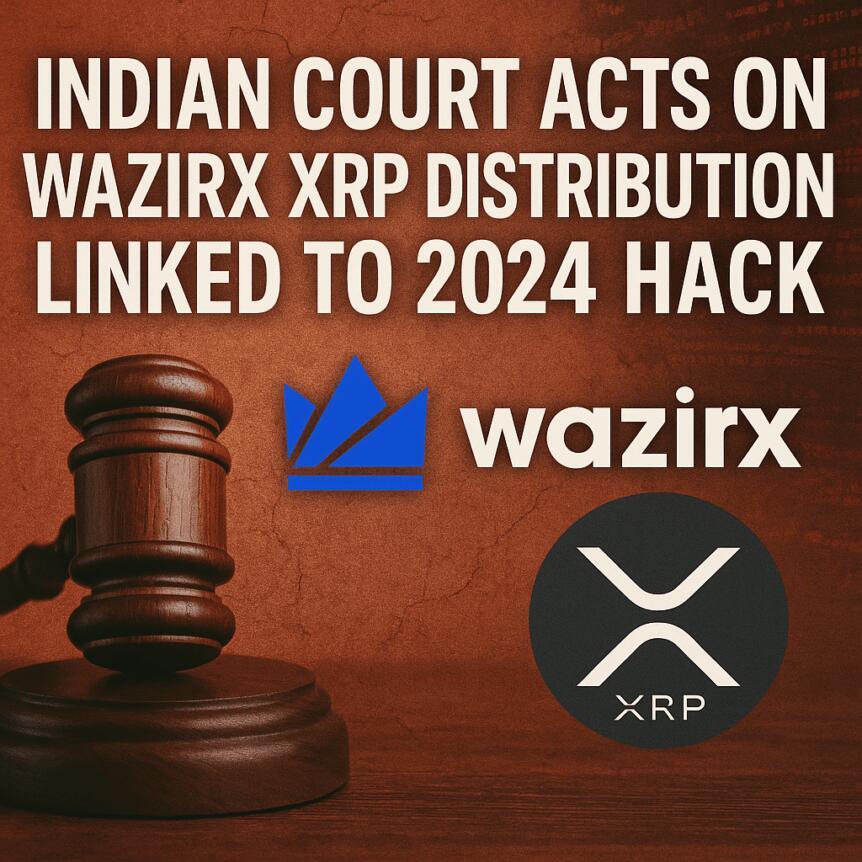
Indian Court Acts On Wazirx XRP Distribution Linked To 2024 Hack
- A High Court in India has ordered WazirX's operator, Zanmai Lab, to provide a bank guarantee of approximately $11,800 amid arbitration over XRP holdings. The ruling follows a major 2024 cyberattack that resulted in a loss of about $235 million worth of crypto assets. The court recognized cryptocurrency as property, capable of being held in trust, in a legal context. WazirX has announced plans to restart operations after over a year of suspension, guided by a restructuring plan approved by Singapore courts. The case highlights the complexities of international legal processes related to crypto disputes involving Indian users and Singapore-based companies.
An Indian high court's recent ruling could have far-reaching implications for how cryptocurrency exchanges manage claims from users affected by hacks and other security incidents. The decision emphasizes the importance of legal frameworks for digital assets amid a backdrop of rising cyber threats and regulatory scrutiny in the crypto space.
Ruling by Justice N. Ananad Venkatesh of India's High Court of Judicature at MadrasIn a decision delivered on Saturday, Justice N. Ananad Venkatesh of India's High Court at Madras ordered Zanmai Lab, the operator of WazirX, to submit a bank guarantee of around $11,800 as part of ongoing arbitration concerning a user's claim for 3,532 XRP tokens. These tokens were frozen following a cyberattack earlier this year that caused an estimated loss of $235 million in crypto assets.
“Since the cyber attack took place, there are insufficient cryptocurrency tokens attributable to the platform's user liabilities to satisfy unsecured crypto claims,” the court explained in the filing. The court further directed that the exchange's parent company, Zettai, which is based in Singapore, develop a scheme under the Singapore Companies Act to administer a fair, orderly distribution of assets under court supervision.
The court also recognized cryptocurrency as a form of property, capable of being“enjoyed and possessed” or“held in trust,” affirming the legal status of digital assets for claims like those involving the XRP tokens. Though WazirX is headquartered in India, its legal proceedings are complicated by its Singapore-based parent.
Last week, WazirX announced it was resuming operations after more than a year since the cyberattack, marking a crucial step in its phased recovery plan. Trading resumed on Friday, following a halt in July 2024, signaling an effort to restore user confidence and operational stability.
Restructuring Plan in SingaporeFollowing the breach, Zettai worked through Singapore's legal system to devise a restructuring plan to compensate affected users. The Singapore High Court approved this plan on October 13, paving the way for recovery and redistribution of assets after a prolonged period of limbo.
The Indian court's ruling adds a layer of complexity to Zettai's plans, especially as many WazirX users are based in India. Reaching a definitive resolution remains a challenge, and WazirX has yet to comment publicly on the specific legal ramifications of the ruling.
Crypto Investing Risk WarningCrypto assets are highly volatile. Your capital is at risk. Don't invest unless you're prepared to lose all the money you invest.
Legal Disclaimer:
MENAFN provides the
information “as is” without warranty of any kind. We do not accept
any responsibility or liability for the accuracy, content, images,
videos, licenses, completeness, legality, or reliability of the information
contained in this article. If you have any complaints or copyright
issues related to this article, kindly contact the provider above.


















Comments
No comment